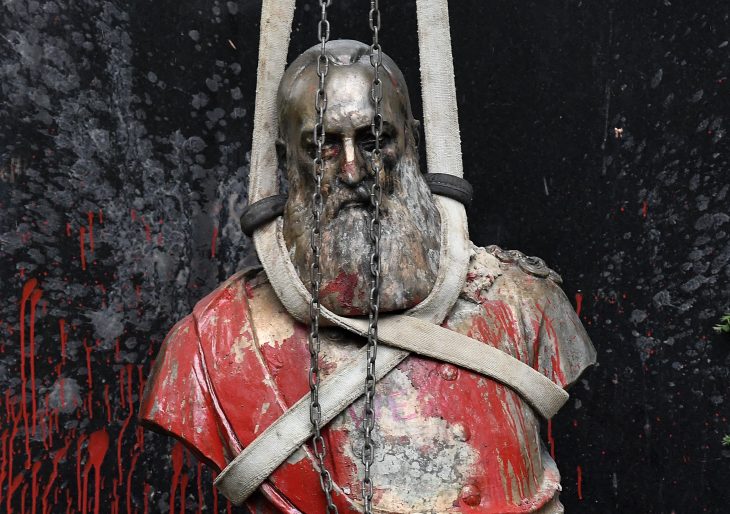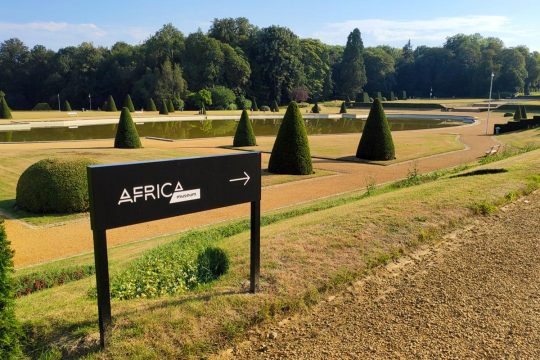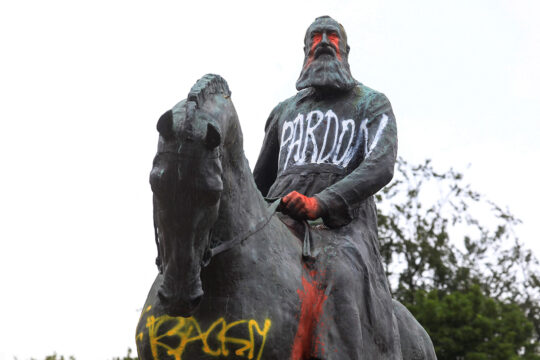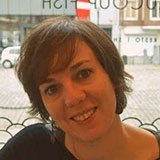A year ago, on July 16, 2020, Belgium set up a special commission to shed light on its colonial past in the Congo, Rwanda and Burundi. This vast and ambitious undertaking, which was brought to the conscience of Belgian parliamentarians, followed a big anti-racism demonstration in Brussels and several acts of vandalism on statues of King Leopold II, who died in 1909 and is the symbol of Belgian colonial violence in the Congo. The time has come to officially acknowledge the responsibilities of Belgian institutions and companies in the exploitation of the Congolese, Rwandan and Burundian populations - between 1885 and 1962.
The Commission, composed of 16 MPs, mandated ten experts, including historians, jurists and sociologists, to take stock of the situation: what are the controversial grey areas in this period of history, the unspoken things that make victims uncomfortable and give rise to the feeling of injustice among their descendants that is being so strongly expressed today?
This preliminary work by the experts was to last between two and three months, but it is only now coming to an end. "It is a very complete first report that has just been finished. It will include elements on history, archives, academic research, gaps in knowledge. But also contributions on racism and colonialism, on reconciliation processes, and on art restitution processes," says Wouter De Vriendt, a member of parliament for the Ecolo-Green party, who chairs the Special Commission. "The report, which is currently being translated, will be presented in a public session of the Commission in September, where the experts will explain it. It will also be published, including on the Chamber's website.”
A list of questions
Several reasons have been put forward to explain the delay. The first is that the scope of the work was underestimated. Very soon after the group of experts was formed and their mission described, it became clear that the initial deadline - autumn 2020 - could not be met. A second deadline of December 2020 was missed for the same reasons. Other difficulties were added, including rules related to the global health crisis, which prevented the experts from meeting and conducting some hearings, as well as the death of one of them, Bishop Jean-Louis Nahimana, former president of the Truth and Reconciliation Commission in Burundi.
The experts worked behind the scenes and nothing filtered out about their work. Last October, during one of the only two public hearings before the special commission since its creation, they nevertheless lifted a corner of the veil on their method. They explained that they had divided their report into different parts, including one focused on history, another on the notion of reconciliation and another on reparation.
"The historical part does not bring new studies, it is simply an overview of certain important themes," said Gillian Mathys, a historian at Ghent University. "It should be seen as a kind of guiding line for the further work of this parliamentary commission. It has two important chapters, one focused on the history itself and the other on the archives.
The reconciliation component is designed to help commissioners clarify expectations. "Who should be reconciled? Belgians among themselves? Generations of Belgians among themselves? Burundians and Belgians? Rwandans and Belgians? Congolese and Belgians? The diaspora and the Belgians?" asked another member of the panel, Valerie Rossoux, a doctor of philosophy and international relations.
The reparation component raises a similar series of questions. "Do we expect restitution of works of art, other objects, bodyparts? Or financial compensation? Or symbolic measures such as apologies, commemoration?" asked Martien Schotsmans, a lawyer experienced in transitional justice. "But it will also be necessary to say who is responsible for the harm caused: the Belgian state, the church, companies, scientists who developed racist ideologies to justify the ‘civilization’ process? The Royal House? And what kind of responsibilities: legal, moral, political? Who will have to contribute to these reparation measures and for whom are they intended: families, communities, entire populations? We will refer to some examples of what has been done elsewhere, and we will make recommendations," she said.
Mandate extended by a year
How will the commissioners work after they have seen this report? What methodology will they themselves adopt? "The experts' report contains methodological recommendations, so it is difficult to make many statements on this subject at the moment," Wouter De Vriendt replies cautiously. "In any case, there will be a series of hearings, probably one per week, on the various topics addressed in the report. It is not yet known whether the experts will remain involved in the commission and which witnesses will be heard. But it is obvious that witnesses from the countries concerned will be heard," says the chairman of the special commission. It is indeed the MPs who will have to go to the heart of the subject of colonization, and the continuation of the work remains unclear. However, this time it will take place in public.
The experts have already drawn the commissioners' attention to this point. "If you want the work of this commission to be legitimate and effective, you need a participatory process," warned Martien Schotsmans. "If you want to open a debate about the consequences of colonialism today and the links to racism and discrimination, you can't do it if you only hold meetings here. You really have to reach out, you have to have big social debates, you have to open the doors to everyone so that there is a real dialogue with society."
That could be a long process. The Commission's mandate has already been extended by one year, until July 2022. As for its budget, "it is of course not infinite," explains Wouter De Vriendt, "but it will certainly not be a problem.”








